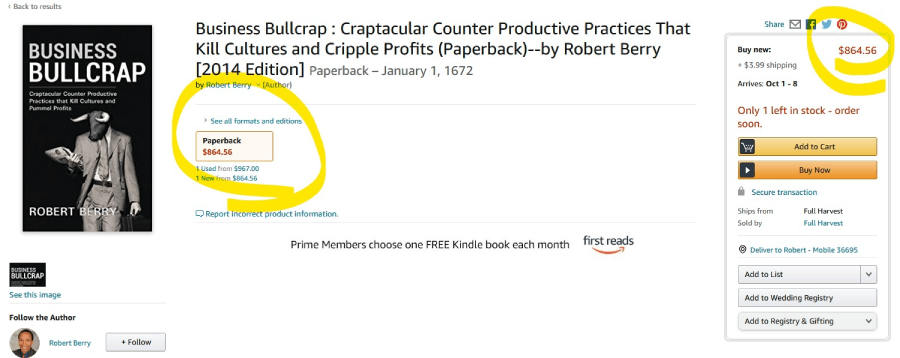Would you be happy if your financial advisor found an error in your account activity that resulted in you gaining $30,000? I would imagine most of us would be happy about that. If you would not be happy with an extra $30,000, email me. I’ll give you my address. Send me any extra cash you find. 😂
Imagine the Dallas County Independent School District’s (DISD) joy when its internal auditors discovered $300,000 in potential overpayments on construction contracts. Or what about the overwhelming Joy when the Chief Auditor disclosed that they were reviewing more contracts, with a potential to recoup $1.7 million more dollars. That had to be exciting.
Before we go forward with this story, let’s go back a bit.
As The Board Turns
In our last episode of Board Games, I talked about why potential whistleblowers remain silent. The subject was the Dallas County Independent School District (DISD). A purchasing department employee accused the DISD of violating company policy and / or state law regarding how it handled construction contracts. Shortly after making the allegation, the DISD terminated the employee for performance issues. An internal auditor began investigating and substantiated the employee’s claim. She then resigned after being told that she needed additional training.
Fast forward a few years, many of those involved in the original incident are no longer employed with the DISD. While reviewing construction contracts, Stephen Martin, the new Chief Internal Auditor and his team noticed some interesting activity. Two audits showed more than $330,000 in potential overpayments. In one instance, the audit suggested the DISD refer the case to the Dallas District Attorney’s Office for criminal prosecution. Additionally, the auditors were reviewing other contracts with $1.7 million in potential overpayments. Finally, earlier this year Martin had been in contact with one vendor who returned $37,000 in overpayments.
Investigating wrongdoing, recovering money, and catching criminals. Sounds almost heroic, now doesn’t it? In these tight economic times, perhaps these guys deserve a medal for potentially bringing revenue back to the organization. Unfortunately, that’s not what happened.
The Unintended Consequences of Telling the Truth
Here’s what happened.
1) The board brought forward a motion to limit internal audit’s review of any contracts less than $250,000. You know, many of the very same contracts where the auditors found over payments.
2) Auditing standards require a department review every five years to ensure department’s are performing up to standards. However, the Board initiated a review of the department two years early.
So for recouping $37,000, finding another $300,000, and potentially recovering another $1.7 million dollars, this Chief Internal Auditor had his span of authority decreased and is subject to a review two years prior than required.
How could this happen in any environment?
That I can’t answer with 100% certainty or accuracy. Only the board members can. But I can tell you some unintended consequences of telling the truth.
Watch for irrational attacks against facts
One thing we know for certain is that Martin’s group was able to recoup $37,000. That is approximately 7% of a $250,000 contract.
We also know that Martin believes his group has identified another $300,000 in overpayments. At the time of this writing, I’m not certain as to whether they’ve collected Abby of these funds.
And we know that there is possibly another million dollars in overpayments to collect.
Factually, it appears as though the internal auditing department has identified weak payment practices. Factually, they have also been able to recoup some of the funds. These facts are misaligned with several actions.
Limiting the department’s ability to review payments that have a history of being incorrect does not make sense. Initiating a department review early is counterproductive. Having participated on both sides of these reviews, I can tell you they take a lot of time to prepare for and execute. This would distract the department from doing it’s everyday duties. With several other contracts under review, this is simply not the appropriate time.
The facts point to a department that has effectively performed its duties in protecting stakeholder interest.
Watch for the Tower of Power
Sometimes people in positions of power can become pi.., well, upset when you don’t perform the way they want you to. They sit in their ivory tower and use their power to manipulate a specific outcome. Right or wrong is rarely of concern. They have an objective that needs to be achieved and anyone in the way must be eliminated.
These are nothing more than corporate bullies. When you see someone exercising their power in a manner that does not make sense, you should question the motive behind it. It does not make sense to limit the authority of the department that has just recouped real money from actual overpayments.
They will attack your credibility
I am very leery of people who have arguments using adjectives. You’ve seen them before. When they disagree with you, they can’t state factually why. As a result, they resort to name-calling, ridiculing or attempting to smear your reputation.
They will say things like:
- He’s stupid.
- She’s crazy.
- He’s not a team player.
But you will find no tangible examples. Most evidence tends to be anecdotal at best.
This is what was happening here. In an appearance before the Board of Trustees, Martin actually said,
“As a federal investigator for 24 years, I understand that when a case against a defendant is airtight, defense attorneys investigate the investigator. I feel this is happening now.”
I imagine the purpose of an early review was to select a firm to do the review that would give someone their desired outcome. Which would be to state that the internal audit department was ineffective. They would most likely reach this conclusion without sufficient supporting facts. The next time you hear someone launch an argument with adjectives, sit back and listen for the facts.
Understand Selective Silencing Tactics
People employ multiple tactics in attempts to silence truth-tellers. In the corporate sector, these tactics are often subtle.
For example, they scaled back responsibilities. In this instance, lack of access to the information means the auditors can not review it. Often you will see reduced air time at Board meetings. If you can’t talk to the Board, then you can’t disclose what you see. And as a last resort, many organizations will simply try to get rid of the troublemaker.
Plan Your Long Term Truth Strategy
Honesty often feels like a losing proposition. Typically it looks like the liars win. And I hate to admit, they usually do. However, the win is usually short-term.
Dishonest individuals are usually able to invoke emotion in others. Emotional manipulation causes people to have knee-jerk reactions. in other words, they respond swiftly to the manipulator. However, time reveals all truths.
If you recall part 1 of this story, the organization terminated the man working in the purchasing department who started all of this. Years after his termination, an auditor substantiated his allegations. After substantiating his allegations, she was told she needed additional training. She resigned. Shortly after her resignation, she was in talks of getting her job back. If you missed all of this, the full story is here. Check it out.
Dishonest people win in the short run because they use emotional arguments to manipulate others. But for all the honest folks, there is only one way to combat this. Hold on to the truth.
Hold on to Truth
It is too difficult to be dishonest. I often say that I am too stupid to be dishonest. Dishonest people are actually quite cunning. It takes a lot of effort to be able to lie and consistently stick to it. Please take that statement as is. I am not calling anyone in this story a liar. But I’m rather speaking to honest vs. dishonest actions.
To his credit, Mr. Martin (the Chief Auditor) faced the board. He articulated his issues in a very concise manner. See video below. I promise it is worth a look. I found his response fitting and factual. Honest and reliable.
He stated that having a review two years early indicates a lack of confidence in the audit Department. He then asked a very rational and reasonable question.
“But for which audit does the lack of confidence come. Nobody has demonstrated that we’ve gotten any reports wrong. If we did, we’d fix them.”
I’ve yet to see a response to this question. But as I stated previously, when times are tough hold on to the truth. It is all you have to stand on. Sometimes it feels like a shaky foundation. It may wobble, but it will never sink.
If you’d like to read more about the consequences of toxic work environments, I have a book recommendation for you. The Arsonist in the Office by Pete Havel.
According to Pete, it “is your survival guide for enduring the toxic workplace (and toxic people) and a call to action for a bold new approach to addressing tough issues. If you have ever led an organization or participated on a team and felt completely frustrated by the sabotage of another colleague, leader, or even client, this book is for you.”
I talked to Pete yesterday. He’s a great guy with a lot of insight. This book is a must-have for anyone in the modern-day workplace.
Another book I’d recommend is by yours truly.
Business Bullcrap: Overcoming Craptacular Counterproductive Practices That Kill Cultures and Pummel Profits
For some reason Amazon believes the first edition is worth $864.56 (see screen print below). While I think it is a good read, I can tell you it is not worth that much. Rest assured the second edition is not that much. Imagine how much you’ll save when you get it for less than $10 😂
I’m Robert Berry. I speak, teach and write on a subjects designed to improve people, processes and profits.
See Chief Auditor Martin address the Board.
My $800 book. Please note that I did not price place this on Amazon at this price. LOL.

References
Robert Berry (78)
Robert (That Audit Guy) Berry is a risk, compliance and auditing advocate, educator and innovator. He helps good professionals become better by creating articles, web services and training that allow them to expand their knowledge network.
